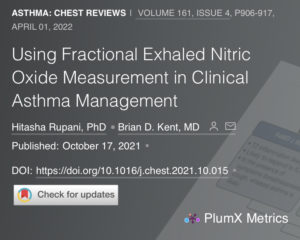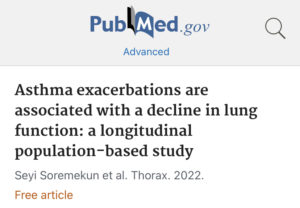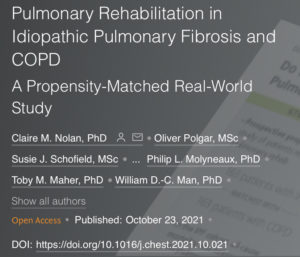
There are new developments in asthma both in the treatment and in the diagnostics methods.
This paper assesses the short term effect of the novel therapeutic agent for severe asthma benralizumab. Benralizumab is a biological therapy that rapidly reduces airway inflammation caused by eosinophils and results in improved symptoms of asthma and less frequent flare ups. Using standard clinical methods and emerging techniques the researchers examined the clinical effect of benralizumab.
Standard techniques included various questionnaires, spirometry, FENO (fractional exhaled nitric oxide) and blood eosinophils. New or advanced testing included functional MRI (using pulmonary 129Xe magnetic resonance imaging) measuring ventilation defect percent and evaluation of occlusions of the airways by mucus plugs with thoracic computed tomography. Using both methods (129Xe MRI and CT) together helps to measure the occlusions of the airways and ventilation, which provides more accurate evaluation of the airways ventilation.
The study found that benralizumab resulted in significantly improved asthma control and ventilation of the airways for 4 weeks after administering the single dose of treatment.
It takes years to implement the novel methods of assessment of the airways, however the emerging methods evaluate the lung function more accurately and choose the most effective treatment for a patient, avoiding unnecessary trials with multiple drugs. The studies like this one help to bring awareness to the novel treatments and diagnostics methods to argue for better choices for asthma patients.
Published: April 2020
For the full article, follow the link: https://journal.chestnet.org/article/S0012-3692(20)30677-2/fulltext




